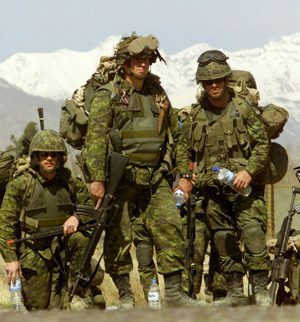Significance of the Kosovo War
Miscellanea / / August 08, 2023

Specialist journalist and researcher
The Balkan powder keg has been, for centuries, the scene of numerous armed confrontations whose actors have been both locals and foreign powers, the latter in a region that, until it plunged into war, few knew about: Kosovo.
The Kosovo war between February 1998 and June 1999 pitted the Yugoslav army against the Kosovar Albanian pro-independence militias. As of January 1999, the conflict would include a NATO military force that fought helping the Kosovar Albanian side.
The Yugoslavia that emerged from the time of World War II, presided over by Tito, maintained a precarious balance between all the peoples that made up the state, in the form of federated republics.
Through concessions and repression, Tito found a balanced formula that masked and hid a reality that he began to jump through the air after his death in 1980, and that it reached a point of no return in June 1991 with the Declaration of independence from Slovenia.
From here, a series of conflicts arose, culminating in the long and bloody war in Bosnia.
As in all the republics of Yugoslavia, where nationalist sentiments had been growing, Kosovo was no exception.
In the late 1980s, Kosovo enjoyed some autonomy, but the wishes of the population of Albanian origin (majority) to become the seventh republic of the federation. This led to their feelings were to ask to go one step further, towards independence.
After the independence of Croatia and Bosnia, clashes between irregular Kosovar Albanian militiamen, supporters of independence, and Serbian security forces were increasing, which served as an excuse for Slobodan Milosevic (president of Serbia) to liquidate the autonomy.
The climate of violence was increasing, and in the mid-1990s the Kosovo Liberation Army carried out a series of actions against the Serbian security forces (police and army).
The Kosovar militias fed on war material from Albania.
The country was a veritable arsenal due to the fear that its communist leader during the cold War, Enver Hoxha, had an external invasion and an internal revolt, so the country was highly militarized. And in the chaos that followed the collapse of the regime, much of this weaponry disappeared.
Or, rather, it "discreetly" changed hands. A portion went to the Kosovo Albanian guerrillas. In addition, after the fact, it was rumored that the Kosovo Liberation Army had received military training and support from the United States and the United Kingdom, although this could not be demonstrated irrefutably.
In 1997, the Kosovar Albanian guerrillas intensified their offensive against the Yugoslav security forces, and they even took revenge on the civilian population.
This motivated international condemnation and increased the actions of both sides through the "logic" -which, in this case, paradoxically lacks all logic- of action-reaction.
At this point (and in the months to come), as in any armed conflict, both sides are guilty of heinous war crimes, committed against both combatants and civilians.
On September 23, 1998, the United Nations Security Council votes on a resolution (1199) that shows its concern about the situation in the region.
Just one day later, NATO issued an alert to prepare its troops for a possible intervention. Just a few weeks earlier, the US President at the time, Bill Clinton, had stated that there would be no US ground troops on the ground.
Everything pointed to an exclusively aerial intervention, as it would later be carried out, but at the time it was something very new.
The interests of the conflict in Kosovo went beyond the naked eye; Russia, a traditional ally of Serbia, supported the latter, and in opposition, the United States, the Kosovar Albanians.
On October 15, 1998, a ceasefire was signed by both parties, which would also be violated by both and would break definitively in December of the same year, but had left a short window of time for the entry of observers international forces in the country which, however, played an irrelevant role if not for giving NATO and the US an excuse for their subsequent intervention.
The discovery of the Račak massacre, in which 45 Kosovar Albanians were killed, and of which Slobodan Milosevic was accused in his trial at the International Criminal Court, although it was later questioned, it was the trigger for a greater intervention by NATO, which called all parties to the conference of Rambouillet.
The effort to achieve an agreed peace failed, since it put Yugoslavia's territorial integrity on the ropes by demanding the entry of a NATO interposition force to protect broad Kosovar autonomy, effectively giving the region de facto independence.
The agreement was rejected by Serbia, leading to a NATO bombing campaign against Yugoslavia that lasted from March 24 to June 10, 1999.
Finally, the government Yugoslav surrendered, giving in to international pressure. Kosovo obtained a controversial independence that, to this day, not all countries have recognized (an example is Spain, fearful that the precedent of a unilaterally declared independence may one day facilitate the recognition of Catalonia by other countries).
The conclusion at the military level was that a conventional war could be won by air intervention alone.
write a comment
Contribute with your comment to add value, correct or debate the topic.Privacy: a) your data will not be shared with anyone; b) your email will not be published; c) to avoid misuse, all messages are moderated.

